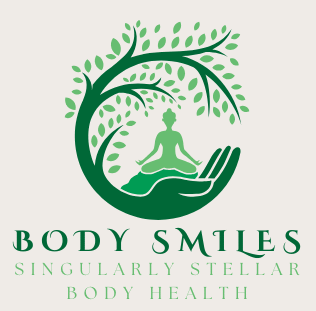February is American Heart Month and there’s no time like the present to get serious about your heart health. Heart disease is the leading cause of death in the United States, but it is preventable with lifestyle changes, a healthy diet and physical activity. Here are some tips to help you keep your heart healthy.
What are the signs of poor heart health?
There are several ways to tell if your heart isn’t as healthy as it could be. You may have shortness of breath, chest pain or a racing heart. You may also have trouble keeping up with the people around you when you’re exercising. Other signs may require a visit to the doctor’s office.
“A decrease in the ability to do the extra work of exercise would be an important sign that the heart may be struggling,” says Dr. James McGovern, Pediatric Cardiologist and Adult Congenital Cardiologist for Asheville Cardiology Associates. “Of course, any of the other organ systems could be involved, but speaking of the heart this could be a clue. Difficulty with exercise often gives us earlier signs that the heart is struggling.”
How does diet affect heart health?
Diet affects heart health in so many ways Dr. McGovern says, and our daily choices determine the outcome.
“We primarily think of dietary choices that predispose us to coronary artery disease such as high-fat foods, high cholesterol foods, and red meat,” Dr. McGovern says. “However, these same unhealthy food choices can lead to other heart problems like hypertension and its associated risk of increasing heart stress.”
In general, a healthy diet should consist of:
· Whole foods
· Fruits and vegetables
· Fiber-rich whole grains
· Lean protein (low in saturated fat)
· Nuts and seeds
A heart-healthy diet should limit:
· Sugar-sweetened beverages
· Red meat and processed meat
· Refined carbohydrates and processed foods
· Full-fat dairy
“Not only would these choices reduce the likelihood of developing atherosclerotic vascular disease in our heart, and throughout our circulation, but they tend to help us to feel better,” Dr. McGovern adds.
According to Dr. McGovern the greatest challenge to eating healthy for many patients is convenience and cost.
“While these factors can be challenging for many to overcome, even making one or two changes per week and trying to stick with it over months to years will allow for great impact over time,” says Dr. McGovern. “And it doesn’t matter if it’s heart health, or preventing cancer, dementia or kidney disease. The same diet does all of those things.”
Is there a link between mental health and heart health?
The heart and the mind are inextricably linked, and one can have a tremendous impact on the other.
“In the congenital patient population there is a great deal of data suggesting a much higher incidence of anxiety, depression, ADHD (children), and post-traumatic stress disorder,” says Dr. McGovern.
There are options to treat depression, stress and anxiety that don’t require medication, but it’s important to talk to your doctor if you are having any of those symptoms, especially if you have heart disease.
“Mental health becomes a critical conversation point for the overwhelming majority of my patient visits for both adults and children,” says Dr. McGovern. “I strongly encourage families and patients to confront these issues courageously. Doing so allows the discussion to become an integral part of their overall health care plan.”
Loneliness and social isolation can also affect cardiovascular health, although it is harder to measure than blood pressure or cholesterol. During the COVID-19 pandemic, we all experienced this with most people not attending social gatherings as much as they did in the past. Studies have shown that there is an increased risk of cardiovascular disease with loneliness and social isolation but researchers are still learning why that happens.
Dr. McGovern adds, “Only when we embrace the importance of mental health can we treat it with the many tools that have become increasingly available since the pandemic.”
Keeping your heart health in check
American Heart Month can be a good time to remind yourself that keeping your heart healthy doesn’t have to be complicated. Find an activity that gets your body moving, even if it’s just for five minutes. If you smoke, consider quitting smoking, and moderate your alcohol consumption. And it’s important to get good sleep and manage your weight. If you have questions about the best ways to keep your heart healthy, be sure to talk to your doctor.
You can also check your cardiovascular health using the American Heart Association’s “My Life Check” tool. Plus, the AHA offers a checklist called “Life’s Essential 8” that provides eight key measures for improving cardiovascular health.
Additionally, you could help save someone else’s life by learning hands-only CPR. When a person experiences a cardiac arrest, their survival depends on immediately receiving CPR. According to the American Heart Association, over 70% of out-of-hospital cardiac arrests happen in homes.
Hands-only CPR is simple and requires only two steps: first, call 911 and then push hard and fast in the center of the person’s chest to the beat of popular songs like “Staying Alive.” Watch and share the AHA’s hands-only CPR instructional video.







More Stories
Reinstatement vs Renewal: Navigating Your Health Insurance Options in India
Why HIFU Technology Is Better Than Injectables: A New Era in Non-Surgical Aesthetics
The Importance of IV Treatment in Las Vegas: A Key to Recharging and Recovery